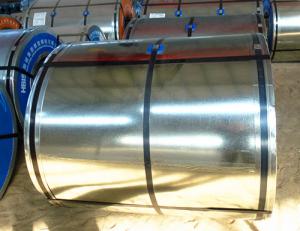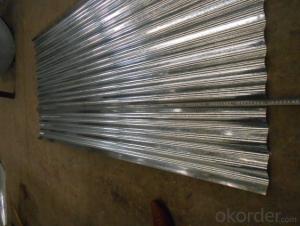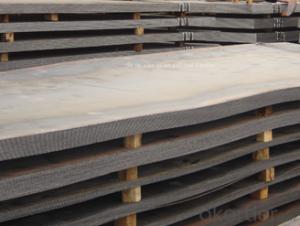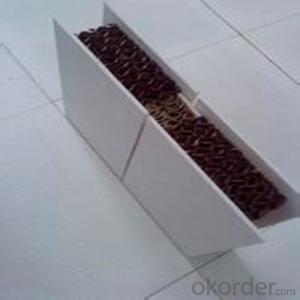galvanized steel sheet
- Loading Port:
- Tianjin
- Payment Terms:
- TT OR LC
- Min Order Qty:
- -
- Supply Capability:
- 8000 m.t. m.t./month
OKorder Service Pledge
Quality Product, Order Online Tracking, Timely Delivery
OKorder Financial Service
Credit Rating, Credit Services, Credit Purchasing
You Might Also Like
Grade: SGH340, DX51D and SGCC (customized)
Surface treatment: passivation, oiling, chromed, unoiled
Spangle types: minimal, zero and large
Thickness: 0.37 to 3.5mm
Width: greater than 1,000mm
Inner diameter: 508 to 610mm
Zinc coating: greater than 80g/m2
Applications:
Construction, home appliance, hardware and machinery
Standards:
JIS g3302 1998, ASTM a653 2003, EN10142 1990
EN10327 2004, AS1397 2001, GB2518-2004
Packing: export packing/sea worthy for international delivery
- Q:What's the difference between the three kinds of pickling plate, cold rolled plate and hot rolled plate?
- Acid board: that is, the hot rolled plate passes the phosphorus removal (the rust, residue, etc.) produced in the process of hot rolling, and so on, the pickling surface is used to obtain the steel plate which is better than the hot rolling surface
- Q:Can steel sheets be used for elevator manufacturing?
- Indeed, elevator manufacturing can involve the utilization of steel sheets. Owing to its robustness, endurance, and ability to withstand fire and corrosion, steel serves as a frequently employed substance in the construction of elevators. For the fabrication of elevator cabin walls, floors, and doors, steel sheets are commonly employed. In addition, steel finds application in the structural framework and support constituents of the elevator system. The inclusion of steel sheets in elevator manufacturing ensures steadfastness, security, and durability, rendering it a trustworthy option for vertical transportation.
- Q:Are steel sheets suitable for food storage applications?
- Steel sheets are indeed suitable for food storage applications. Steel is a highly durable and versatile material that is resistant to corrosion, making it an excellent choice for storing food. Steel sheets provide a hygienic and safe environment for food, as they are non-porous and do not absorb odors or flavors. They also offer protection against contaminants and pests, ensuring the integrity and freshness of the stored food. Additionally, steel sheets are easy to clean and maintain, making them ideal for food storage facilities, restaurants, and any other application where food safety is a priority.
- Q:Are steel sheets magnetic?
- Yes, steel sheets are magnetic because they are primarily made of iron, which is a ferromagnetic material.
- Q:Are the steel sheets resistant to warping or twisting?
- Steel sheets have a remarkable capacity to resist warping or twisting. Steel earns recognition for its exceptional strength and rigidity, rendering it less prone to deformation when subjected to stress or pressure. The inherent characteristics of steel, including its elevated tensile strength and minimal thermal expansion, add to its ability to withstand warping or twisting. Moreover, steel sheets are frequently produced with accurate measurements and consistent thickness, which further heightens their resistance to deformation. Consequently, steel sheets emerge as a dependable and long-lasting option for a wide range of applications that necessitate stability and structural integrity.
- Q:Can steel sheets be used in food-grade applications?
- Yes, steel sheets can be used in food-grade applications. Stainless steel sheets, in particular, are commonly used in food processing and storage as they are resistant to corrosion, easy to clean, and do not react with food.
- Q:What are the common thicknesses for galvalume steel sheets?
- The common thicknesses for galvalume steel sheets typically range from 0.018 inches to 0.125 inches.
- Q:What are the common applications of galvanized steel sheets?
- Galvanized steel sheets are commonly used in a variety of applications due to their excellent corrosion resistance properties. Some common applications include roofing and siding for buildings, automotive body parts, electrical appliances, ductwork, and agricultural equipment.
- Q:What are the different edge finishes available for steel sheets?
- Depending on the desired aesthetic and functional requirements, steel sheets offer various edge finishes. The most common options are as follows: 1. Mill Edge: Directly from the steel mill, this is the standard and unfinished edge. It is typically used in non-critical applications like industrial or structural use. 2. Trimmed Edge: Irregularities and burrs are removed by trimming or shearing the rough mill edge. This provides a cleaner and more uniform edge, making it suitable for applications where appearance matters. 3. Deburred Edge: Through a deburring process, sharp or jagged edges are eliminated, resulting in a smooth and rounded edge. This enhances safety, making it common in applications involving frequent handling or contact. 4. Beveled Edge: The edge is cut or ground at an angle, creating a sloping or chamfered edge. This improves both aesthetics and functionality, especially in architectural applications and jointing or welding. 5. Rolled Edge: By rolling or bending the steel sheet's edge, a rounded or folded edge is formed. Rolled edges provide a smooth and finished appearance, making them ideal for visible applications like decorative or furniture manufacturing. 6. Hemmed Edge: Folding the edge of the steel sheet over itself creates a double-layered and durable edge resistant to fraying or unraveling. Hemmed edges are commonly used in exposed areas that require added durability, such as roofing or sign manufacturing. These examples demonstrate the range of edge finishes available for steel sheets. Each finish offers unique characteristics and benefits, allowing for customization based on specific requirements and preferences.
- Q:Are steel sheets suitable for exterior wall cladding?
- Yes, steel sheets are suitable for exterior wall cladding. They provide durability, weather resistance, and can be customized to achieve various aesthetic designs. Steel cladding is popular for its strength, low maintenance requirements, and ability to withstand harsh environmental conditions, making it an ideal choice for exterior applications.
1. Manufacturer Overview |
|
|---|---|
| Location | |
| Year Established | |
| Annual Output Value | |
| Main Markets | |
| Company Certifications | |
2. Manufacturer Certificates |
|
|---|---|
| a) Certification Name | |
| Range | |
| Reference | |
| Validity Period | |
3. Manufacturer Capability |
|
|---|---|
| a)Trade Capacity | |
| Nearest Port | |
| Export Percentage | |
| No.of Employees in Trade Department | |
| Language Spoken: | |
| b)Factory Information | |
| Factory Size: | |
| No. of Production Lines | |
| Contract Manufacturing | |
| Product Price Range | |
Send your message to us
galvanized steel sheet
- Loading Port:
- Tianjin
- Payment Terms:
- TT OR LC
- Min Order Qty:
- -
- Supply Capability:
- 8000 m.t. m.t./month
OKorder Service Pledge
Quality Product, Order Online Tracking, Timely Delivery
OKorder Financial Service
Credit Rating, Credit Services, Credit Purchasing
Similar products
New products
Hot products
Related keywords






























